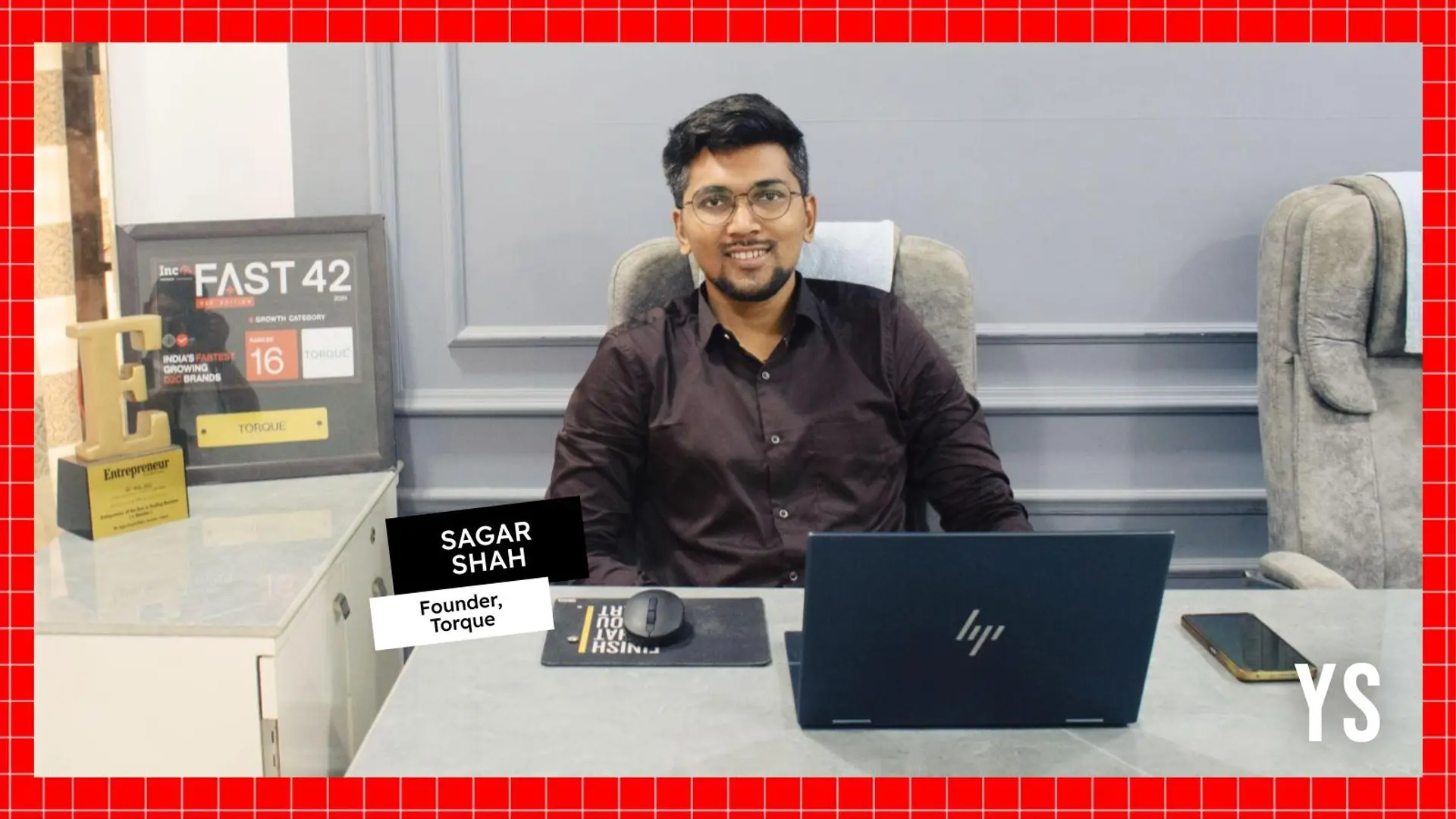How this engineer-turned entrepreneur built a custom furniture startup
Founded in 2019, Mumbai-based Torque currently caters to the affordable luxury furniture segment.
The direct-to-consumer (D2C) furniture space has some stand-out players in the Indian market, including Wakefit and Sleepyhead. But Mumbai-based Torque has maintained a low profile in the five years of its existence.
The company offers fully customisable furniture such as sofas, beds, mattresses, dining tables, etc to customers through its website as well as ecommerce platforms like Flipkart Perfect Homes and Amazon. It is also working on expanding to Pepperfry and Urban Ladder.
Founded by Sagar Shah in 2019, Torque has factories in Bengaluru and Lucknow as well.
The products are priced in the range of Rs 24,000 to Rs 25,000. Currently, the sofas and recliners are made in-house, and executive chairs are sourced from vendors.
Shah says Torque is seeing maximum traction from Bengaluru, Pune, Noida, Hyderabad, and Gurugram—areas which have the presence of IT companies.
The startup’s customer base has increased from approximately 750 in 2021 to over 20,000 in 2024, he adds.
Putting the pieces together
A mechanical engineering graduate, Shah initially wanted to start a nuts-and-bolts manufacturing business and name the company Torque. However, after graduation, he joined a furniture company. Later, when he wanted to start his own furniture business, he was bound by an agreement with the previous company. Hence, he started a toy business by the name Torque, and a year later, he launched his furniture business with the same name.
“I joined hands with a few local vendors. I would get orders from Amazon and give it to them for manufacturing. That is how I made my first profit in the furniture business,” says Shah.
The startup then rented a 1,200 sq. ft space in Mumbai, and grew to a 6,000 sq ft. space. A few months later, the startup expanded to Bengaluru and tied-up with vendors in Lucknow, Visakhapatnam, and Hyderabad.

Team Torque
"Furniture is a business with a high-profit margin. Initially, I used to get furniture from local vendors, and sell," the founder says. The profits from this, along with the funds from his toy business, propelled him to bootstrap the furniture business.
Shah then kickstarted the hiring process to build the team. Torque currently has 23 permanent employees and 56 contractual employees.
Standing apart
“We combine various features such as customisation, which is difficult to find on online platforms… and our sofas, in the Silvester model, are priced between Rs 45,000 and Rs 50,000. But in retail, it would cost around Rs 1.2 lakh. We are providing the same quality online at affordable luxury,” says Shah.

From handle, colour, and size to specifically requested designs by customers, the products offered by Torque are highly customisable, he says.
Based on the level of customisations required, the time taken for manufacturing also varies. The cost also increases by about Rs 5,000 to Rs 6,000 per day.
All orders are pre-paid. If a product with minor customisations, such as colour changes, is returned, it will be sold locally at a discounted price.
“This is stock clearance for our company. If we keep it will be a loss for us, considering the space being used for dead stock,” the founder says.
If a customer has asked for major customisation, such as tailor-made sizes, and then returns the product, the company retains 10-15% of the payment and refunds the remainder to the customer.
The startup operates on a direct-to-consumer (D2C) e-retail model. While it does not have retail outlets, interested customers can visit the factories in the three cities it is available in to see the products.
According to Shah, “three major challenges for online sellers are logistics and transportation, which is costly; in-transit damages, and assembly options.”
Torque also has third-party service providers for assembly–a network of 80 people throughout India.
While the company has been supplying products to most parts of the country, it recently started catering to Assam. However, the company is currently facing delivery challenges and is unable to maintain delivery timelines, which go up to 22 days here, says Shah.
Offering recycled products
Torque also makes use of sustainable resources to offer recycled products. “The fibre we use are from plastic PET (polyethylene terephthalate) bottles. We have a vendor (undisclosed) who makes the polyester fibre from these bottles. The beds and tables are made of engineered wood, which is made from recycled wood,” says Shah.
“Currently, we are working with a manufacturing company that manufactures the foam specifically for us based on the density required. The sourcing is the same all over India, and fabrics come from Delhi,” says the founder. The wood is locally sourced to cater to specific geographies, he adds.
Torque looks to tie up with Sheela Foam in the future “if we get the right quality at the right price,” he says.
Growth and plans ahead
CSIL Data shows that India is among the top 5 furniture markets in the world.
According to Trade Promotion Council of India (TPCI), India’s Furniture market was valued at $23.12 billion in 2022, making it the 5th largest producer and 4th largest consumer of furniture globally. It is predicted to rise at a CAGR of 10.9% to reach $32.7 billion by 2026.

Torque’s revenue grew to Rs 10 crore in FY 24 from about Rs 7-8 crore in the previous financial year where it had nearly doubled from a Rs 4 crore revenue in FY 22. It is now projecting a revenue of about Rs 18-19 crore for FY 25.
“The company has a growth rate of 300% YoY,” says Shah. The company has invested in a 1.5-acre plot in an industrial area near Baroda, Gujarat, to develop the country’s largest sofa factory.
“Currently, we are streamlining compliance and shifting business from proprietary to private limited… We plan to raise funds post this… and are seeking mentorship and networking.”
Shah is also looking to visit China to import machinery. The company plans to expand its presence to the UAE and neighbouring countries as well as African countries in the near future.
Five years down the lane, the company sees itself touching Rs 500 crore in revenue, expanding to the B2B segment, exports, and having 50-60 retail outlets across India.
Edited by Megha Reddy




